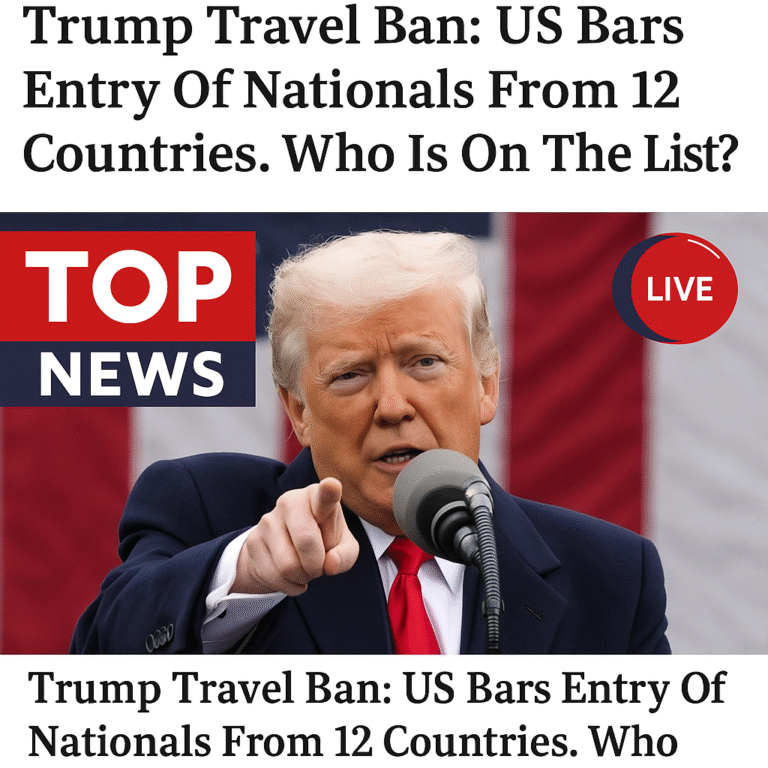
June 5, 2025 — Washington, D.C.
In a move stirring renewed debate over U.S. immigration policy, former President Donald Trump has signed a proclamation reinstating and expanding the controversial travel ban, effective June 9, 2025. The latest restrictions bar entry to U.S. soil for nationals of 12 countries deemed to pose security risks due to issues such as inadequate identity management, poor information-sharing practices, and high visa overstay rates.
The affected countries include Afghanistan, Myanmar, Chad, the Republic of the Congo, Equatorial Guinea, Eritrea, Haiti, Iran, Libya, Somalia, Sudan, and Yemen. Citizens from these nations will face a complete ban on entry into the United States.
In addition to the full ban, seven other countries—Burundi, Cuba, Laos, Sierra Leone, Togo, Turkmenistan, and Venezuela—will face partial travel restrictions targeting immigrant and several non-immigrant visa categories.
The proclamation outlines exemptions for certain groups, including U.S. lawful permanent residents, valid visa holders, dual nationals with passports from non-restricted countries, diplomats, and athletes participating in major international sporting events such as the FIFA World Cup and the Olympics. Case-by-case waivers will also be considered when an individual’s entry is deemed in the U.S. national interest.
This expanded travel ban echoes the original policies implemented during Trump’s first term, which faced significant legal challenges but were ultimately upheld by the Supreme Court in 2018. The Biden administration had rescinded these bans in 2021, but the Trump administration’s return to power has reignited the issue, prompting both legal and public backlash.
Critics argue the ban unfairly targets vulnerable populations and strains diplomatic relations with affected countries. Advocacy groups warn it could foster division rather than enhance security and may adversely impact immigrant communities across the United States.
Legal experts anticipate new lawsuits challenging the proclamation, though the precedent set by the 2018 Supreme Court decision may influence judicial outcomes.
The White House maintains the action is necessary to safeguard national security and public safety, emphasizing the importance of rigorous vetting to prevent foreign terrorists and other threats from entering the country.
As the ban takes effect next week, its implications will be closely watched by policymakers, immigrant communities, and international partners alike.